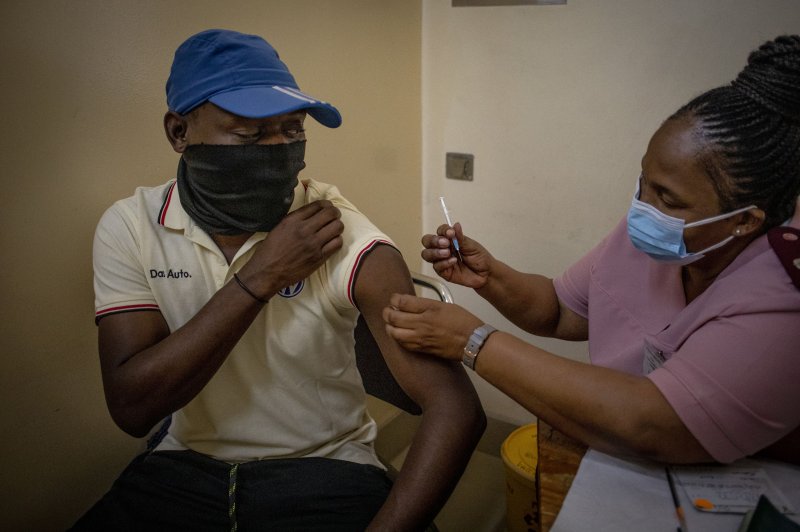1 of 2 | A man receives his second vaccination against COVID-19, at a government-run clinic, during the ongoing COVID-19 vaccinations in Johannesburg. File Photo by Kim Ludbrook/EPA-EFE
Dec. 31 (UPI) -- South Africa lifted its overnight curfew with officials saying they believe the Omicron wave may have peaked.
A Thursday news release approved several changes to the country's previous Alert Level 1 regulations, including the lifted curfew and accommodating gatherings of up to 1,000 people indoors.
Officials said that there have been lower rates of hospitalizations in the fourth wave of COVID-19 than in previous waves. As a result, the country has the capacity to treat patients for regular health services.
Cases in all but two South African provinces have declined. The Department of Health reported a 29.7% decrease in new cases in the week ending on Dec. 25 than in the previous week.
"All indicators suggest the country may have passed the peak of the fourth wave at a national level," officials said.
Health officials encouraged parents with children ages 12 and older to have their children vaccinated before the school term starts in 2022. They also supported booster shots for the public.
The Omicron variant was first detected in South Africa in November and is spreading elsewhere in the world quickly.
Medical experts have cautioned against extrapolating from the country's data since South Africa has a relatively young population and is currently in the middle of summer -- a time when respiratory illnesses are uncommon.
South African researchers have noted a decreased severity of the disease in a study with 466 COVID-19 patients recently hospitalized in Tshwane.
Scientists found that patients required four days in the hospital -- about half the time needed earlier in the pandemic.















